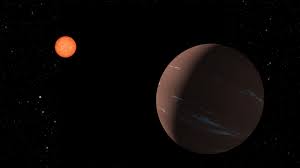In the vast expanse of the cosmos, astronomers have made a groundbreaking discovery: a potentially habitable exoplanet orbiting a star in our cosmic neighborhood. This revelation opens up a world of possibilities and ignites the imagination with visions of distant worlds ripe for exploration. Let’s embark on a journey to uncover the details of this remarkable find and ponder the implications it holds for humanity’s understanding of the universe.
The Quest for Habitable Worlds
Astronomical Exploration
For centuries, humans have gazed at the stars, wondering if we are alone in the universe. With advancements in technology, astronomers have turned their telescopes skyward, scanning distant star systems for signs of habitable planets. The search for exoplanets—worlds orbiting stars outside our solar system—has intensified in recent decades, fueled by the desire to find Earth-like worlds capable of supporting life.
The Goldilocks Zone
Central to the quest for habitable exoplanets is the concept of the habitable zone, also known as the Goldilocks zone. This is the region around a star where conditions are just right for liquid water to exist on a planet’s surface—not too hot, not too cold, but just right. Finding a planet within this zone raises the tantalizing possibility of it hosting life as we know it.
The Discovery: A Potentially Habitable Exoplanet
Observations and Analysis
Using state-of-the-art telescopes and sophisticated observation techniques, astronomers have detected a distant exoplanet orbiting a nearby star. Initial analysis suggests that this planet falls within the habitable zone of its parent star, making it a prime candidate for further study.
Characteristics of the Exoplanet
Preliminary data indicates that the newly discovered exoplanet shares several key characteristics with Earth. It has a rocky composition similar to our own planet and orbits its star at a distance conducive to the presence of liquid water. These factors increase the likelihood that it could harbor life, although further research is needed to confirm this possibility.
Implications and Speculations
A New Frontier for Exploration
The discovery of a potentially habitable exoplanet opens up exciting possibilities for future space exploration. Scientists and space agencies may now set their sights on studying this distant world up close, probing its atmosphere for signs of life and unraveling its mysteries.
Philosophical Reflections
Beyond the realm of science, the discovery prompts philosophical reflections on humanity’s place in the universe. Are we alone in the cosmos, or are there other intelligent beings gazing back at us from distant stars? The search for habitable exoplanets sparks contemplation of our cosmic origins and destiny.
The revelation of a potentially habitable exoplanet in a nearby star system represents a monumental achievement in the field of astronomy. It underscores the boundless potential of human ingenuity and the insatiable curiosity that drives us to explore the unknown. As we continue to unravel the mysteries of the universe, each discovery brings us closer to answering age-old questions about our place in the cosmos.




